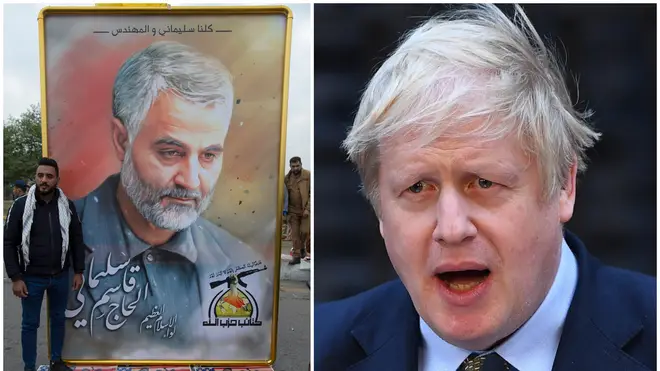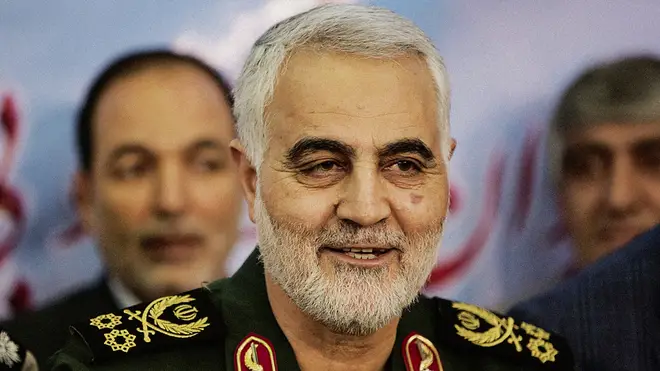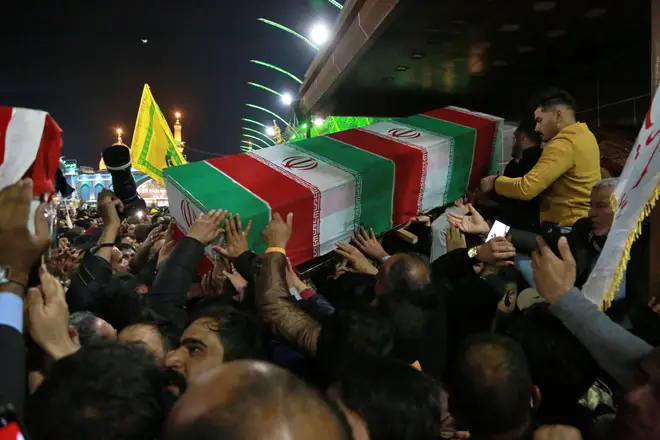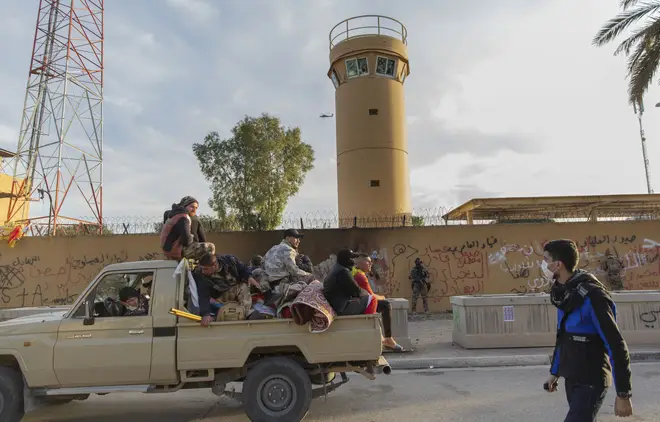
Boxing Day Special with Shelagh Fogarty 1pm - 3pm
5 January 2020, 18:50 | Updated: 5 January 2020, 22:15

The Prime Minister has finally responded to the killing of Iranian General Qassem Soleimani and called him a "threat to all our interests."
Boris Johnson had been facing calls to cut his Caribbean holiday short to deal with the growing crisis, and broke his silence this evening with a statement which appeared to back Mr Trump's actions.
It is understood Mr Johnson spoke with Mr Trump earlier today.
The full statement said: "Today I have spoken with President Macron, President Trump and Chancellor Merkel, and will be speaking with other leaders in the coming days.
"General Qassem Soleimani posed a threat to all our interests and was responsible for a pattern of disruptive, destabilising behaviour in the region.
"Given the leading role he has played in actions that have led to the deaths of thousands of innocent civilians and western personnel, we will not lament his death.
"It is clear however that all calls for retaliation or reprisals will simply lead to more violence in the region and they are in no-one's interest.
"We are in close contact with all sides to encourage de-escalation.
"I will be speaking to other leaders and our Iraqi friends to support peace and stability."

Concerns over the stability of the region have been further escalated after Iran said it would no longer abide by the limits of the 2015 nuclear deal.
It ends an accord that blocked Tehran from having enough material to build an atomic weapon.
Earlier today, the Iraqi Parliament voted in for a resolution to expel all foreign troops from its land.
However, the vote was not legally binding and only the Iraqi government need to make the resolution law before it could be enforced.
Foreign forces, including the UK and US military, would also be banned from using Iraqi land, airspace or water for any reason under the terms of the vote.
The UK government has since urged Iraq to reconsider, saying the military coalition is to protect the area from the threat of ISIS.
Some 400 UK troops are stationed in Iraq in the fight against IS, while the US has 5,200, prompting fears of a withdrawal that could cripple the battle against the terror group.

Soleimani, the leader of the elite Quds force, was killed in a targeted strike at Baghdad Airport in the neighbouring Iraq in the early hours of Friday morning.
His death has sparked international concerns of unrest in the region, with the US urging its citizens to leave the country as soon as possible.
The day after the attack, a number of co-ordinated attacks were made on the US Embassy in Baghdad and military bases where US forces are based.
No deaths were reported in the strikes, although a number of injuries were suffered.
US President Donald Trump claimed strike was done to "stop a war", saying Soleimani "made the death of innocent people his sick passion".
He later vowed to bomb 52 sites in Iran if there are any more retaliations from Tehran.

Tehran had previously warned "severe revenge" awaits the US, and announced three days of national mourning will commence.
Soleimani was once described by Iran's Supreme Leader Ayatollah Ali Khamenei as a "living martyr of the revolution."
He was an icon of the country's 1979 Islamic Revolution who was hailed a figure of national resilience against four decades of US pressure and sanctions.
But, for the US and Israel, he was an enemy of the west and a shadowy figure in charge of Iran's proxy forces.
In the eyes of those in Washington and Tel Aviv, he was directly responsible for fighters in Syria backing President Bashar al-Assad and for the deaths of American troops in Iraq.
His death was ordered by Mr Trump, who told US forces to take "decisive defensive action to protect US personnel abroad by killing" the 62-year-old commander".
Foreign governments on both sides have urged restraint and de-escalation in the area.
UK Foreign Secretary Dominic Raab said: "We have always recognised the aggressive threat posed by the Iranian Quds force led by Qasem Soleimani.
"Following his death, we urge all parties to de-escalate. Further conflict is in none of our interests."